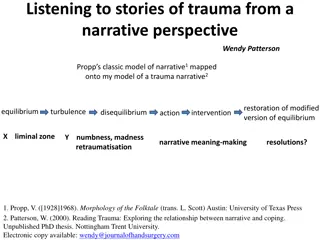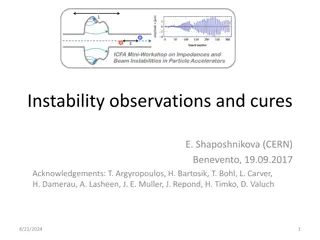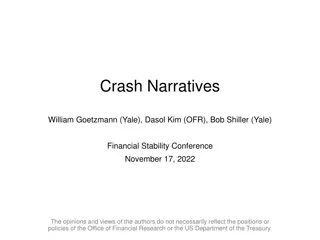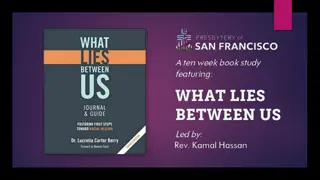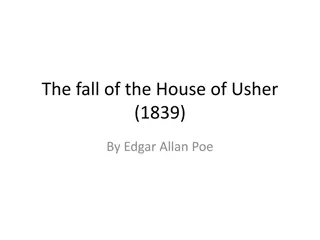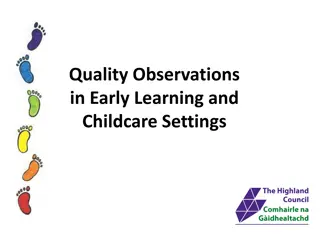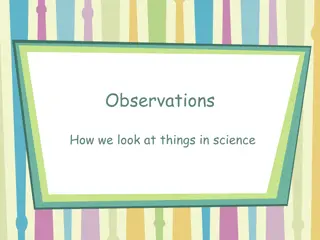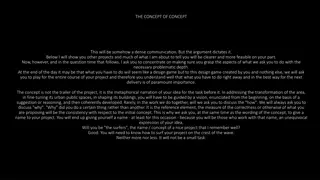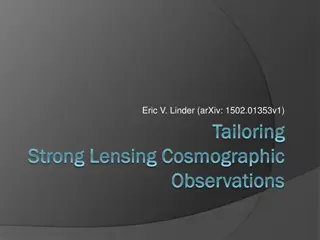Intriguing Narratives and Observations in Classic Literature
Explore a collection of excerpts from classic literature, delving into themes of societal expectations, individual resolve, and personal observations. Witness characters grappling with decision-making, firmness of mind, and chance encounters that reveal underlying emotions. Join in on the contemplation and drama as narratives unfold in rich detail and complexity.
Download Presentation

Please find below an Image/Link to download the presentation.
The content on the website is provided AS IS for your information and personal use only. It may not be sold, licensed, or shared on other websites without obtaining consent from the author.If you encounter any issues during the download, it is possible that the publisher has removed the file from their server.
You are allowed to download the files provided on this website for personal or commercial use, subject to the condition that they are used lawfully. All files are the property of their respective owners.
The content on the website is provided AS IS for your information and personal use only. It may not be sold, licensed, or shared on other websites without obtaining consent from the author.
E N D
Presentation Transcript
It is a truth universally acknowledged that a single man in possession of a good fortune, must be in want of a wife.
Here is a nut. To exemplify, a beautiful glossy nut, which, blessed with original strength, has outlived all the storms of autumn. Not a puncture, not a weak spot anywhere. This nut while so many brethren have fallen and been trodden under foot, is still in possession of all the happiness that a hazel-nut can be supposed capable of.
And so, I made her go. I could not bear that she should be frightened from the visit by such nonsense. What!-would I be turned back from doing a thing that I had determined to do, and that I know to be right, by the airs and interference of such a person?-or, of any person I may say. No,- I have no idea of being so easily persuaded. When I have made up my mind, I have made it. And Henrietta seemed entirely to have made up hers.., .and yet, she was as near giving it up, out of nonsensical complaisance .
Happy for her, to have such a mind as yours at hand! ... [W]oe betide him, and her too, when it comes to things of consequence, when they are placed in circumstances, requiring fortitude and strength of mind, if she have not resolution enough to resist idle interference in such a trifle as this. Your sister is an amiable creature; but yours is the character of decision and firmness, I see. .... It is the worst evil of too yielding and indecisive a character, that no influence over it can be depended on. .... "My first wish for all, whom I am interested in, is that they should be firm." (87-88)
The following morning Anne was out with her friend, and for the first hour, in an incessant and fearful sort of watch for him in vain; but at last, in returning down Pulteney Street, she distinguished him on the right-hand pavement at such a distance as to have him in view the greater part of the street. There were many other men about him, many groups walking the same way, but there was no mistaking him. She looked instinctively at Lady Russell, but not from any mad idea of her recognising him so soon as she did herself. No, it was not to be supposed that Lady Russell would perceive him till they were nearly opposite. She looked at her, however, from time to time, anxiously; and when the moment approached which must point him out, though not daring to look again (for her own countenance she knew was unfit to be seen), she was yet perfectly conscious of Lady Russell's eyes being turned exactly in the direction of him -- of her being, in short, intently observing him. She could thoroughly comprehend the sort of fascination he must possess over Lady Russell's mind, the difficulty it must be for her to withdraw her eyes, the astonishment she must be feeling that eight or nine years should have passed over him, and in foreign climes and in active service too, without robbing him of one personal grace!
At last, Lady Russell drew back her head. Now, how would she speak of him? "You will wonder," said she, "what has been fixing my eye so long; but I was looking after some window-curtains, which Lady Alicia and Mrs. Frankland were telling me of last night. They described the drawing-room window- curtains of one of the houses on this side of the way, and this part of the street, as being the handsomest and best hung of any in Bath, but could not recollect the exact number, and I have been trying to find out which it could be; but I confess I can see no curtains hereabouts that answer their description." Anne sighed, and blushed, and smiled, in pity and disdain, either at her friend or herself. The part which provoked her most, was that in all this waste of foresight and caution, she should have lost the right moment for seeing whether he saw them.
I have valued myself on honourable toils and just rewards. Like other great men under reverses . . . I must endeavour to subdue my mind to fortune. I must learn to brook being happier than I deserve'" (p. 247). [I have been accustomed to believe that everything that has come to me, I have earned. I have prided myself on working hard for just rewards. Like other great men who suffer setbacks I must try to accept my luck. I must learn to put up with being happier than I deserve.]
So altered that he should not have known her again! These were words which could not but dwell with her. Yet she soon began to rejoice that he had heard them. They were of sobering tendency; they allayed agitation; they composed, and consequently must make her happier. Frederick Wentworth had used such words, or something like them, but without an idea that they would be carried round to her. He had thought her wretchedly altered, and, in the first moment of appeal, had spoken as he felt. He had not forgiven Anne Elliot. She had used him ill; deserted and disappointed him; and worse, she had shewn a feebleness of character in doing so, which his own, decided, confident temper could not endure. She had given him up to oblige others. It had been the effect of over-persuasion. It had been weakness and timidity. (p.44)
Seldom, very seldom, does complete truth belong to any human disclosure; seldom can it happen that something is not a little disguised, or a little mistaken.



